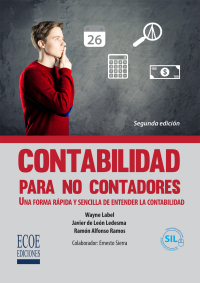Question
Park Corporation acquired the voting stock of Sequoia Company on January 1, 2020 for $25 million in cash and stock. At the date of acquisition,
Park Corporation acquired the voting stock of Sequoia Company on January 1, 2020 for $25 million in cash and stock. At the date of acquisition, Sequoia's book value totaled $3 million, consisting of $1.6 million in capital stock, $1.8 million in retained earnings, and $400,000 in accumulated other comprehensive losses. Sequoia's reported net assets at the date of acquisition were carried at amounts approximating fair value, except its inventory was overvalued by $500,000 (sold in 2020), its plant assets (10-year life, straight-line) were overvalued by $3,500,000, and its long-term debt (premium amortized over 10 years, straight-line) is undervalued by $100,000. Sequoia also had previously unreported identifiable intangibles (5-year life, straight-line) valued at $5,000,000. It is now December 31, 2020. Sequoia reports net income of $1,200,000 and other comprehensive income of $50,000 for 2020 and declares and pays dividends of $200,000. None of the revaluations are impaired in 2020. Park uses the complete equity method to account for its investment. Park's beginning balance of accumulated other comprehensive income is $175,000, and it reports $250,000 in other comprehensive income for 2020 on its own books. The balance for accumulated other comprehensive income on the December 31, 2020 consolidated balance sheet is:
| A. | $825,000 | |
| B. | $475,000 | |
| C. | $425,000 | |
| D. | $ 25,000 |
If the parent company uses the complete equity method when accounting for its wholly-owned subsidiary on its own books:
| A. | The parent's comprehensive income equals consolidated comprehensive income. | |
| B. | The parent's net income equals consolidated comprehensive income. | |
| C. | The parent's comprehensive income equals consolidated net income. | |
| D. | The subsidiary's comprehensive income equals consolidated comprehensive income. |
A parent sells land to its 80%-owned subsidiary at a gain of $100,000. The following year, the subsidiary sells the land to an outside entity for a gain of $10,000. How is the noncontrolling interest in net income affected in the year the subsidiary sells the land?
| A. | Increase of $20,000 | |
| B. | No effect | |
| C. | Decrease of $22,000 | |
| D. | Decrease of $2,000 |
Step by Step Solution
There are 3 Steps involved in it
Step: 1

Get Instant Access to Expert-Tailored Solutions
See step-by-step solutions with expert insights and AI powered tools for academic success
Step: 2

Step: 3

Ace Your Homework with AI
Get the answers you need in no time with our AI-driven, step-by-step assistance
Get Started


